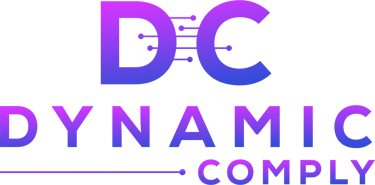Steps to Ensure Your Organization is AI Compliant
5/21/20252 min read


Understanding AI Compliance
As organizations increasingly adopt artificial intelligence (AI) technologies, understanding the implications of AI compliance has become essential. AI compliance refers to adhering to ethical standards, legal frameworks, and best practices in the deployment of AI systems. This ensures that the technologies not only function efficiently but also respect user rights, data privacy, and societal norms.
Assessing Existing Frameworks
To become AI compliant, organizations must first assess their existing frameworks. This involves a comprehensive review of current data governance practices and policies surrounding data collection, processing, and storage. It is crucial to identify potential gaps that exist in your current systems that may not align with emerging AI regulations, such as the General Data Protection Regulation (GDPR) in Europe or similar legislation in other regions. Understanding your organization’s current compliance status is essential to designing an effective plan for improvement.
Implementing Ethical Guidelines
Another vital step toward AI compliance is the implementation of ethical guidelines tailored to your organization. Establishing a clear ethical framework for AI use helps in navigating the complex landscape of regulations and public expectations. This framework should encompass principles such as accountability, transparency, and fairness. Encouraging an organizational culture that prioritizes ethical AI will not only enhance compliance but can also improve trust among clients and stakeholders.
Training and educating your staff on these ethical principles is vital. Regular workshops and seminars can equip employees with the necessary knowledge to navigate AI technologies responsibly. Furthermore, staying updated on the latest developments in AI legislation can aid your organization in maintaining compliance over time.
Enhancing Data Security Measures
Given that data is at the heart of AI systems, enhancing data security measures is another critical aspect of achieving compliance. Organizations must implement robust cybersecurity strategies to protect sensitive data from breaches and unauthorized access. This may include encryption, regular security audits, and incident response planning. By securing data and making it a priority, organizations can mitigate the risks associated with AI technologies while also adhering to compliance requirements.
Furthermore, organizations should establish clear data retention and deletion policies in alignment with compliance mandates. This not only protects the organization from potential legal repercussions but also aligns operational practices with responsible data management.
Monitoring and Continuous Improvement
Finally, achieving AI compliance is not a one-time effort but rather an ongoing commitment. Organizations need to develop robust monitoring processes that regularly evaluate AI systems' performance against compliance standards. Establishing key performance indicators (KPIs) related to AI compliance can provide measurable insights into your organization's standing and areas that require attention.
Creating a feedback loop allows for continuous improvement in AI practices, ensuring adherence to ethical standards and legal requirements. Engaging external auditors or compliance experts can provide additional insights and lend credibility to your organization's commitment to becoming AI compliant.
In conclusion, becoming AI compliant is a multifaceted challenge that demands a strategic approach. By understanding AI compliance, assessing existing frameworks, implementing ethical guidelines, enhancing data security, and committing to continuous improvement, organizations can effectively navigate the complexities of AI adoption while safeguarding their reputation and ensuring operational integrity.
Connect:
(571) 306-0036
© 2026. All rights reserved.
